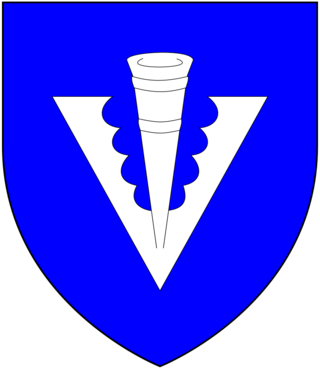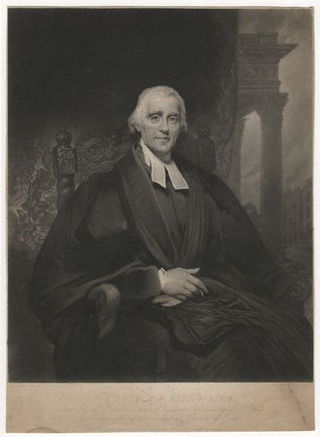John Leyburn was an English Roman Catholic bishop who served as the Vicar Apostolic of England from 1685 to 1688 and then when it was divided served as the Vicar Apostolic of the London District from 1688 to 1702. He was not only a theologian, but also a mathematician, and an intimate friend of Descartes and Hobbes.
Frederick Charles Reinhold was a British singer and organist. He was born in London, son of Henry Reinhold, a well-known singer, and his wife Sarah. According to the Dictionary of National Biography (1885–1900), the son was also known as Charles Frederick Reinhold.
William Hawkins (1682–1750) was a barrister and serjeant-at-law, best known for his work on the English criminal law, Treatise of Pleas of the Crown.
Miles Pinkney (1599–1674), alias Thomas Carre or Carr, was an English Roman Catholic priest of the Old Chapter. A point of contact for English Catholics with Cardinal Richelieu, some of whose works he translated, he was also a founder of the St Augustin convent in Paris.
John Betham (1642?–1709) was an English Catholic priest and tutor to James Francis Edward Stuart.
Matthew Nicholas (1594–1661) was an English Dean of St. Paul's Cathedral, London.

William Bradbridge (1501–1578) was an English bishop of Exeter.

The New College at Hackney was a dissenting academy set up in Hackney in April 1786 by the social and political reformer Richard Price and others; Hackney at that time was a village on the outskirts of London, by Unitarians. It was in existence from 1786 to 1796. The writer William Hazlitt was among its pupils, sent aged 15 to prepare for the Unitarian ministry, and some of the best-known Dissenting intellectuals spent time on its staff.
John Garnett (1707/08–1782) was an English bishop of Clogher in the Church of Ireland.
Francis Gage (1621–1682) was an English Roman Catholic priest, who became President of the English College, Douai.
James Smith (1645–1711) was an English Roman Catholic prelate, Vicar-Apostolic of the Northern District under James II of England.
Thomas Whincop was an English compiler of theatrical history.

Joseph Holden Pott (1759–1847) was an English churchman, archdeacon of London from 1813.
Henry Thomas Riley was an English translator, lexicographer, and antiquary.

The Convocation of 1563 was a significant gathering of English and Welsh clerics that consolidated the Elizabethan religious settlement, and brought the Thirty-Nine Articles close to their final form. It was, more accurately, the Convocation of 1562/3 of the province of Canterbury, beginning in January 1562.
William Selwyn (1775–1855) was an English lawyer, known as a legal author.
This article is about the particular significance of the year 1732 to Wales and its people.
Charles Thomas Cruttwell (1847–1911) was an English cleric, headmaster and classical scholar, known as a historian of Roman literature.